If you aren’t on page 1 of Google, you’re leaving money on the table.
Each day, Google receives more traffic than there are people on the planet. Most of that traffic is extremely well catered to, which wasn’t always the case.
Continuous algorithm updates have allowed the tech giant to align with user intent better than ever before.
While these updates have enhanced the quality of search results, they’ve also raised the bar for businesses wanting their websites on page 1. In other words, ranking organically and staying ranked is not an easy task.
“Organically” being the key word here.
Over the course of my career, I’ve merged, migrated, and grown over $2 million worth of websites, with unpaid search being the primary source of traffic for each of them.
Aligning your content with search intent and keywords will get you halfway there, but off-site and under the hood is where most of the heavy lifting happens.
Optimising websites, growing organic traffic, and helping companies to get a better return from their marketing budget has become a true passion of mine.
I’ve been lucky enough to work with publicly traded enterprises, universities, founder owned companies, local businesses, and just about everything in between.
As a professional SEO consultant, I can propel your website’s growth, and lead you to record-breaking revenue, as I’ve done for hundreds of clients over the last decade.
My Background
I caught the internet bug around the mid-90s and began writing static HTML websites before Google even existed.

Being fluent in both web dev and information systems led me to pursue a career as an IT sysadmin, but this role wasn’t as remote-friendly as I would’ve liked. When I decided I wanted more location freedom, SEO was a clear opportunity.
After building a website and proving to myself that I had the right skills, I began freelancing for a marketing agency, heading up their SEO services. Despite the large team and fancy sales presentations, they just didn’t seem to be getting the kind of results their clients expected.
“Surely it can’t be that hard,” I thought, and proceeded to invest further into my own website, to test my skills with complete control over the process.
As it turns out, SEO was harder than I expected. You can have all the technical knowledge in the world, but without a strategy and experience, you’re going to be out of your depth.
After many years of obsessing, learning what not to do, investing time, money, and emotion into something that didn’t always work, I finally cracked the code.
I discovered how to plan content that would rank well.
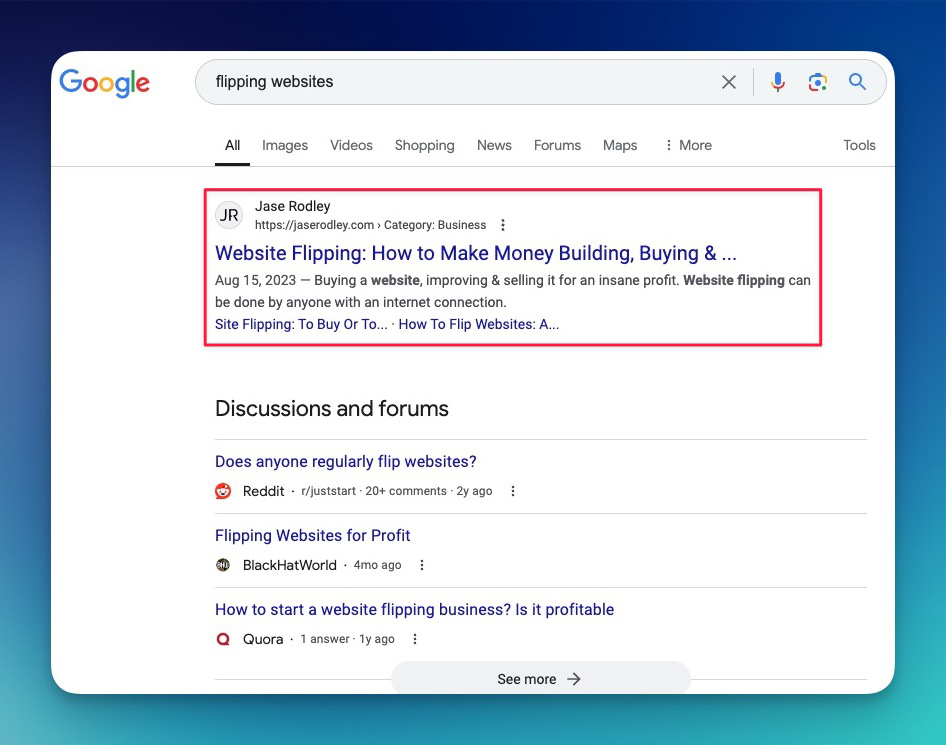
I figured out how to make new and existing content perform at its best, and when to delete content that isn’t working.
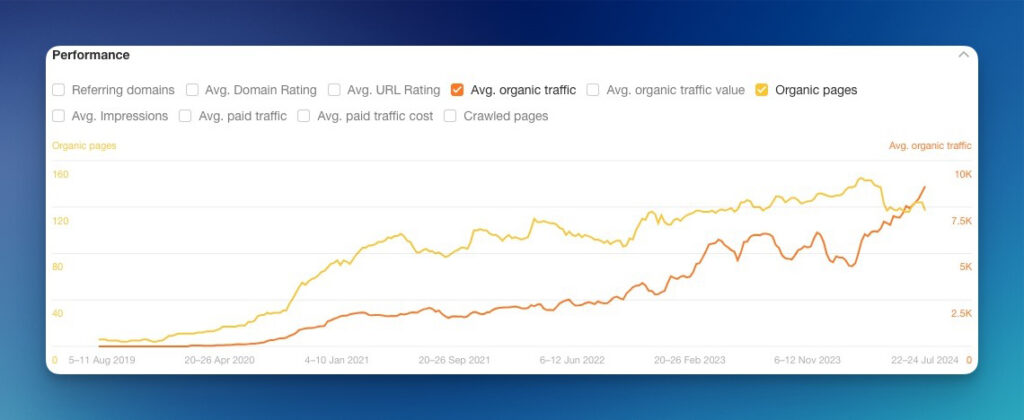
My past experience helped me to get websites technically perfect.
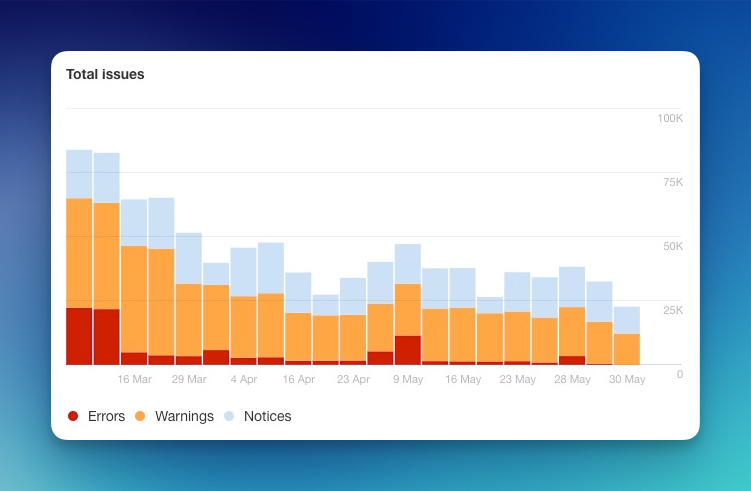
Through many mistakes, I taught myself which backlinks actually make a difference and which ones don’t. Then I built a system to earn them.
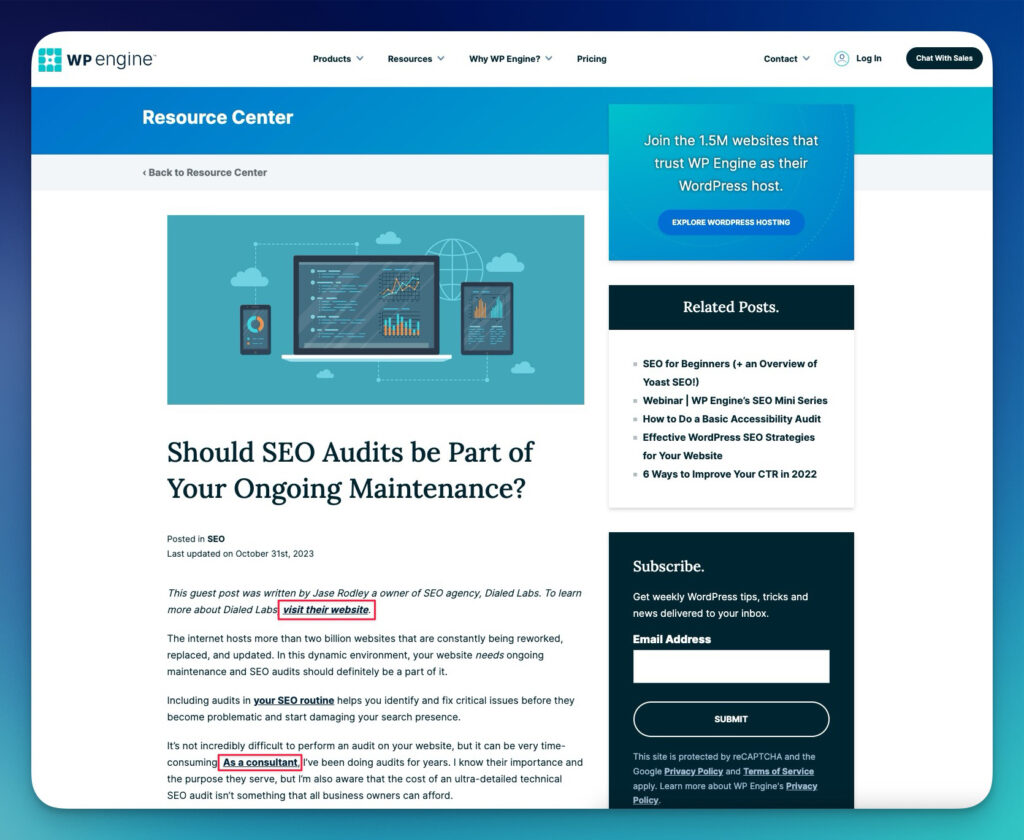

After spending a lot of time building my own sites, selling some, and buying others, I realised that my real skill is in helping clients to achieve their goals, so now that’s what I do.
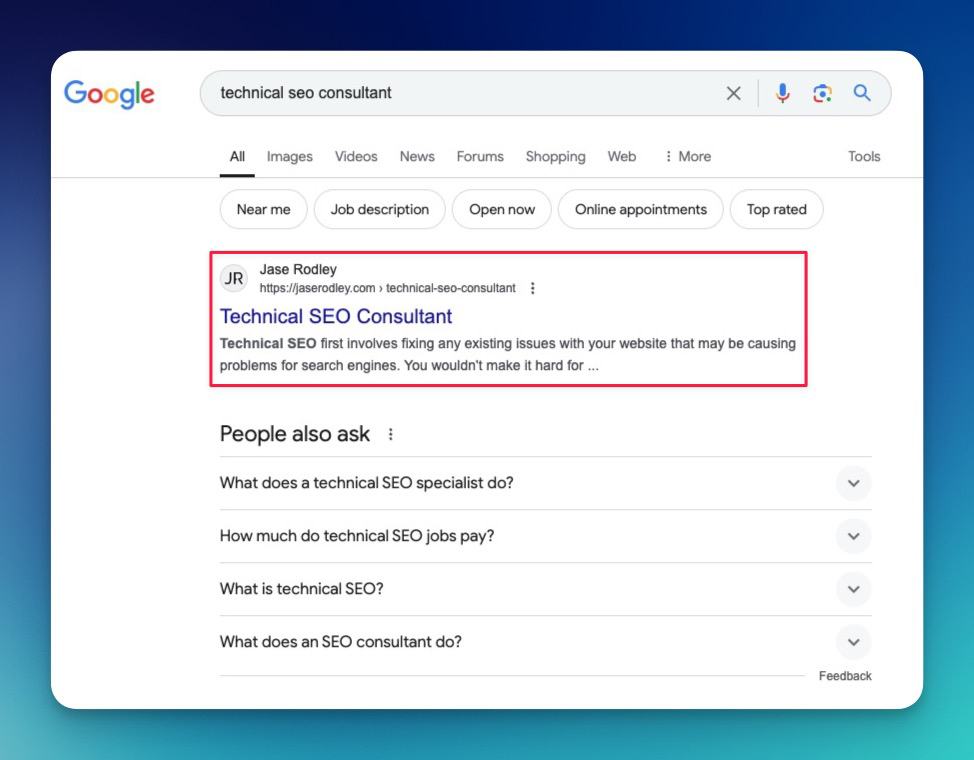
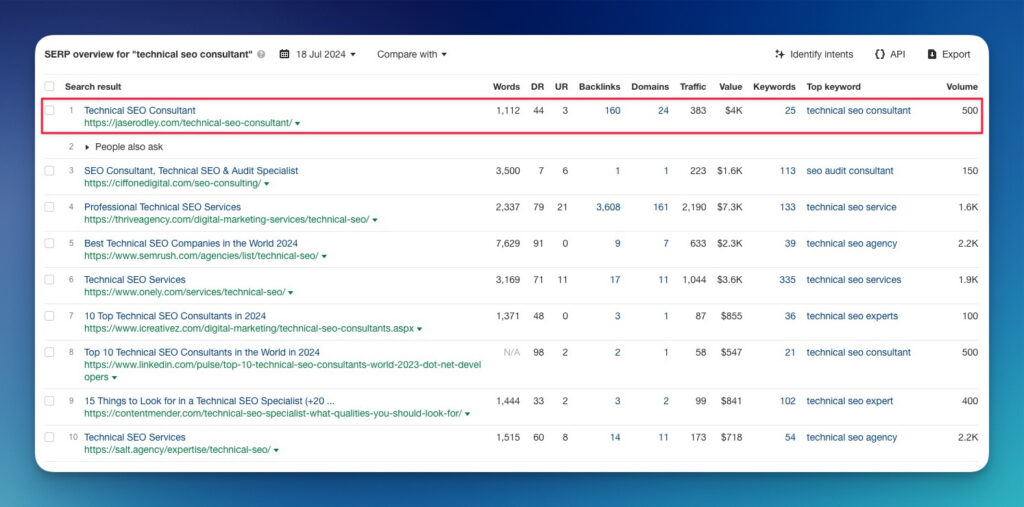
You’ll still find me at the top of the SERPs, because I feel it’s important to win new business using the same strategies that I offer to my clients.
But you’ll also find me behind the scenes, helping clients to absolutely crush it in Google, making organic search their #1 source of new business.
“Highly communicative, very clear and concise, highly responsive to questions, problems, and never overly salesy on additional products. We have 15x the organic traffic today than we had before.”
Harry Morton, CEO, Lower Street
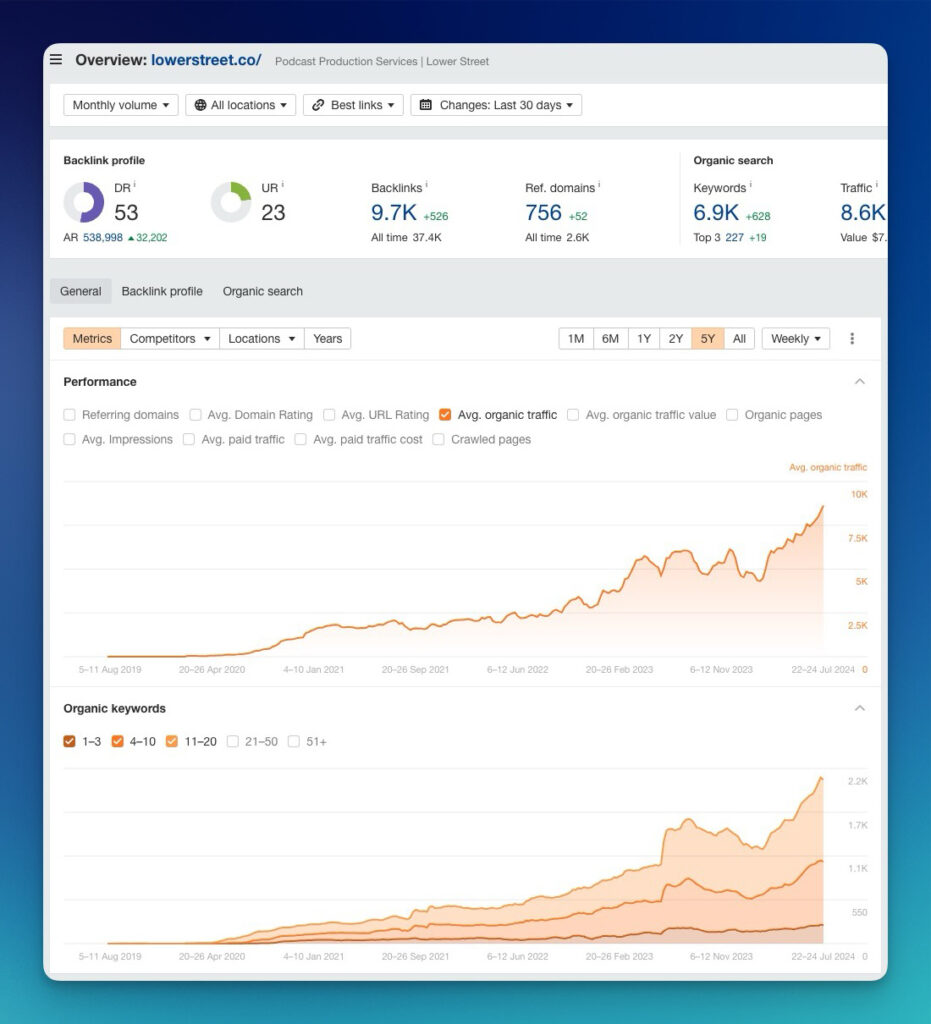
SEO Done Right: My Ethos
How you do anything is how you do everything.
Martha Beck
This is an idea that I’ve always subscribed to and it rings true in my professional life—I run a tight ship, apply myself by default, and maintain ruthless attention to detail no matter the task at hand.
These qualities are integral to the systems I’ve developed for optimising my clients’ websites. Here are some of the key characteristics of my SEO methodology.
Get the Basics Right
Many SEOs, especially agencies, rely on a battery of expensive software and repeatable processes that are easy to scale. While I do encourage using the right tools at the right time, my initial approach is much simpler.
I strongly believe that if people aren’t looking for something, you shouldn’t be spending money on marketing it to them. This is why I love organic search so much—when someone wants your product or service, there you are, ready to go.
Trends will come and go, but as long as you’re giving your users what they’re actively looking for, you’ll be surprised to see how things fall into place.
My approach begins with understanding your business, what your customers want, and how they search for it.
Keep It Simple, Keep It Compact

Modern day SEO strategies are complex—some of these work short-term, some work long-term, others do nothing. Running a simple, lean website is something that works long-term.
Larger sites have a greater overhead and more points of failure. Images may break, embedded videos get taken down, redirects stop working, old content gets outdated, and you may end up with broken links littered all across your site.
In contrast, simple websites have fewer unnecessary pages and scripts, leading to better page speeds, reduced server loads, and improved uptime, all of which Google considers as green flags.
This doesn’t mean that your website has to be tiny, but it will always be a goal of mine to make sure that every URL on your site is working as hard as possible.
Consistent Content Quality, Site-Wide
The content marketing industry gets a bad rap for producing spammy, low-quality content. If reading that made you a little uncomfortable, then your site is probably a part of the problem too.
Think of great content as marketing that helps others. When content entertains, educates, and genuinely helps people, even if it’s advertising your end product with a strong call to action, it’s still doing good for the world.
If it’s worth doing, it’s worth doing well. I go to great lengths to ensure that any new and existing content on your website is well written, follows consistent editorial guidelines, and is in tune with SEO requirements.
No Black Hats, No Shortcuts
It’s no news that many SEOs engage in shady practices to temporarily inflate rankings only for them to dip shortly after.
At this point in my career, I’ve seen just about every sketchy and admittedly clever tactic being implemented to boost traffic. And it works… Until it doesn’t.
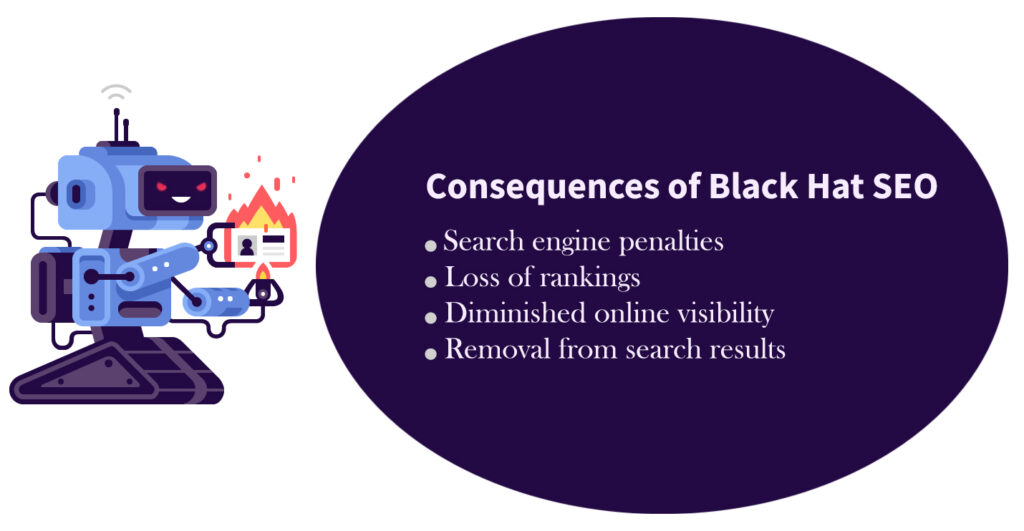
It’s plain and simple, short-term tactics will hurt your website over the long-term. There are no two ways about it. Heading down this path means putting your business’ best asset—your website, at risk.
While you’re on the lookout for the right SEO consultant, you may come across an SEO expert who will claim they can “chart the map to proverbial gold” almost overnight.
If wasting money on a short-lived boost in traffic isn’t a strong enough deterrent for you, consider that Google can and will penalise your website for unnatural link building, duplicate content, keyword stuffing, and other distrustful tactics.
Loss of rankings, diminished visibility, and potential removal from search results is possible even if your content is legit, but your “link guy” is not.
Your best bet is to hire someone who’s been there, done that, and constantly adapting to new opportunities.
Don’t Chase Vanity Metrics
Manipulating progress reports is the easiest thing in the world, especially for people who regularly use the software that dishes them out.
Keen decision makers who may be uninitiated on the technical front may believe that certain strategies are working when it may not be the case.
The lack of trust in this industry combined with stories of companies having paid upwards of $15k for a half-assed audit and an ill-informed CMS recommendation is what propagates the “SEO is BS” mindset among many business owners.
At some point, you must look beyond the sales pitch and take a judgement call on a personal level. There’s a factor of quality when it comes to who you hire for SEO.
And frankly, it’s not difficult to get away with being lazy in this industry. That’s why you’ll find more pseudo-experts than actual, honest-to-God professionals who care about your business.
The Way Forward
Well executed SEO strategies are greater than the sum of their parts. They’re moving targets that require tremendous upkeep.
I strongly recommend my clients to start with what’s in their control before anything else. It may not be new and cutting edge, but it works. You wouldn’t build a house on a swamp, so just the same we want to give your website a solid foundation first.
You’ll find that I’m extremely critical in this phase as I take execute the following.
Content Audit

The amount of content you have on your site will dictate the number of backlinks you’ll need. The simpler your site, the fewer links will be needed and the easier it’ll be to manage.
To get there, I’ll critically analyse your content to work out what is performing, what isn’t, what needs to be improved, and asking you to delete the rest…
Using a combination of Google Analytics, Ahrefs, and Google Search Console, I’ll figure out what content needs to be deleted, redirected, rewritten, optimised, and left alone.
Based on my findings, I’ll delegate the task to my team of writers. The goal of this exercise is to maximise the value of your content.
From here we can look to new initiatives, such as discovering and filling in your content gaps, looking for entirely new content opportunities, and winning backlinks that your competitors can’t even fathom.
Technical Fixes

The next step is to audit your site from a technical perspective where I’ll either help your developers to fix the issues, or fix them myself. Doing this will highlight any “invisible” issues holding the site back.
To put things into perspective, consider that Google knows what it knows about your site because of its crawlers. Think of these as robots that systematically browse through your website to understand what’s on it.
Crawlers can easily distinguish between, say, a heading tag and a div (used for styling and layout without much semantic value).
If something’s not right on your website, crawlers will misinterpret the information. It’s like getting your wires crossed with Google and missing out on opportunities to rank.
For example:
- misconfiguring your robots.txt file, such as blocking CSS and JavaScript, will cause significant issues. Google may not recognise your media queries and assume that your site isn’t mobile-friendly.
- improper rich markup will fail to communicate details like reviews and star ratings to Google, which may also result in loss of rich snippet opportunities even if your site clearly deserves it.
This barely scratches the surface of all that can go wrong if your technical SEO parameters are off. A thorough audit will help to highlight most of these issues, while the rest can be hunted down and tackled manually.
Put simply, Sites that are technically sound are the easiest for search engines to understand. They’re easier to crawl, easier to index, more secure, and have a clean code.
Building Backlinks

I’ve come across so many websites that seemingly do everything right, have great content, maintain topical authority, and boast an excellent user experience, but despite that they fail to rank…
Sites like that can easily crawl out of obscurity and into the spotlight. All they need is a few high-authority backlinks, which admittedly is easier said than done.
Think of these as votes of approval from other websites that are ranking well. It’s arguably the most important metric that Google relies on when it comes to deciding which sites get to be on page #1.
After an initial audit, my process begins with taking a critical view of your backlink profile. The exact strategy will depend on how strong or weak the profile is from the get go.
I’ll review your backlink profile and work out if we can recover any lost links, potentially remove some spammy ones from past campaigns, and then help you to get what you need to start winning.
High-quality links are far from cheap; websites typically charge good money for these. Landing editorially placed links in a reputed publication with the help of platforms like HARO is an alternative, but it requires a ton of labour.
It’s an expensive process no matter which way you look at it, but the upside is huge. The downside? You can’t afford not to, your site just won’t rank without links. That’s why you need a link building consultant.
Internal Linking

Lastly, to help Google truly understand the scope of your content and what it’s about, I’ll perform internal link optimisation on your website.
As the name suggests, it refers to linking relevant pages within your website to one another, making it easier for people to navigate through it.
This motivates them to spend more time on your site, which is the best metric to determine engagement levels and how useful your users find your website. It’s also something that Google considers a positive signal.
Get In Touch
You likely found this page while searching for a professional SEO consultant on Google. I say that with confidence because I practise the same methods I recommend to my clients.
Trends will come and go, algorithm updates will cause volatility, and AI will shake things up, but human experience and trust will stay constant.
As boring as it may sound to non-marketers and creatives, I live and breathe SEO. You’ll find me in the trenches day in, day out.
I’m constantly upskilling, experimenting, and monitoring the SERPs. So if you want to work with someone who’ll take ownership of your project and set you up for success, contact me today.
Even if you’re just looking for a second opinion on your SEO campaign, don’t hesitate to reach out. Let’s discuss your goals and see if we’re a good fit.